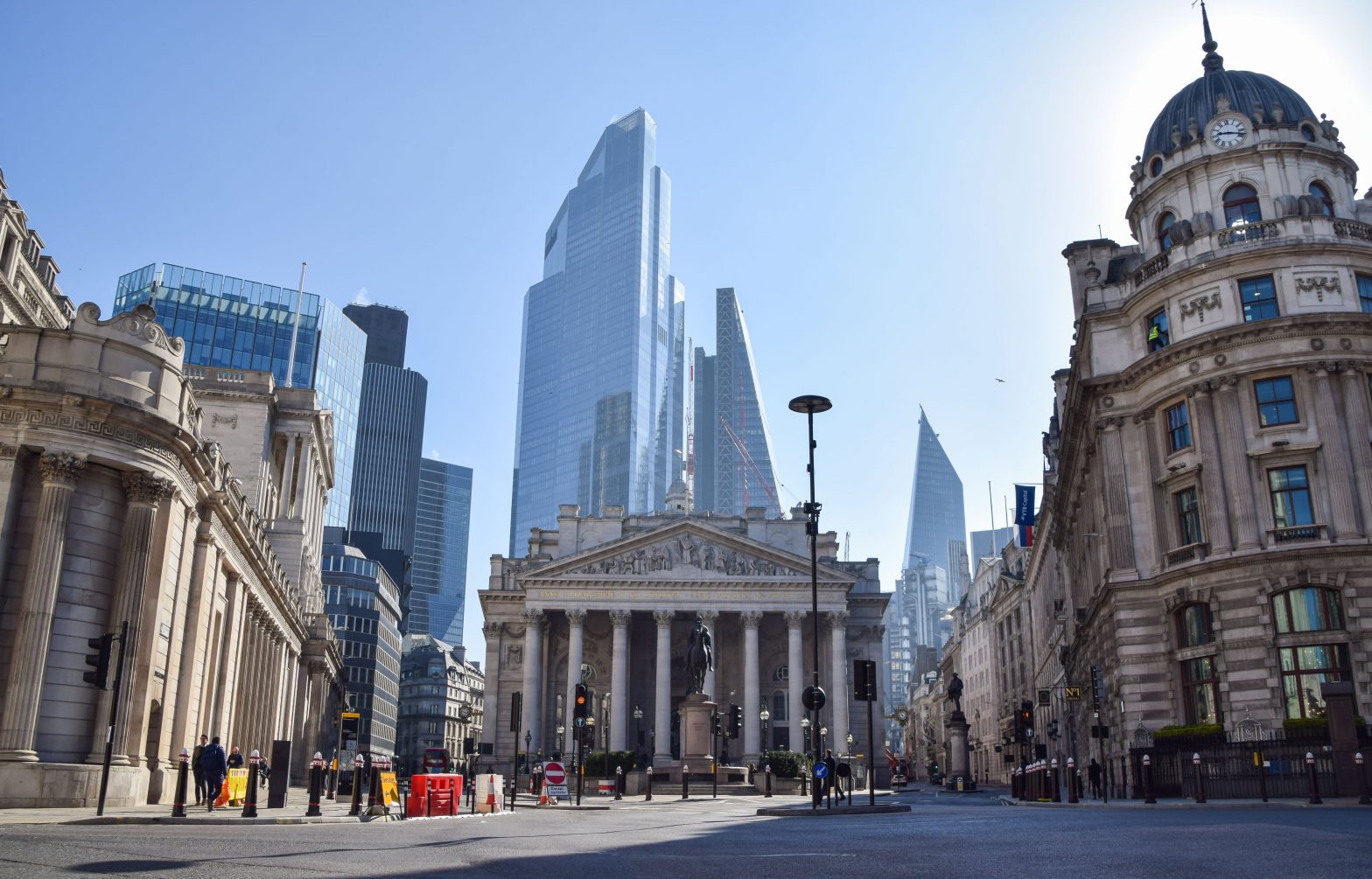View of the Royal Exchange and Bank of England in London.
Vuk Valcic | SOPA Images | LightRocket | Getty Images
LONDON — The Bank of England on Thursday hiked interest rates for the first time since the onset of the pandemic, increasing its main interest rate to 0.25% from its historic low of 0.1% as inflation pressures mount.
U.K. inflation hit a 10-year high in November as the Consumer Price Index rose by an annual 5.1%, up from 4.2% in October and well above the central bank’s target of 2%. The Bank now expects inflation to remain at around 5% through the majority of the winter period, peaking at around 6% in April 2022%.
Meanwhile, the labor market recovery has remained robust, with 257,000 staff added to payrolls in November, even after the end of the country’s furlough scheme.
After the Bank surprised markets by avoiding a rate hike in November, many analysts had suggested that the subsequent data showed the economic conditions were in place to start tightening.
However, most economists polled by Reuters expected the Bank Rate to be held at 0.1% going into Thursday’s meeting, in light of the emergence of the omicron variant and its rapid spread in the U.K.
At its November meeting, the MPC suggested that if incoming data, particularly on the labor market, were broadly in line with its central projection, a hike would be needed to return inflation toward its 2% target.
“Recent economic developments suggest that these conditions have been met,” the Bank said in its report Thursday.
“The labour market is tight and has continued to tighten, and there are some signs of greater persistence in domestic cost and price pressures.”
The Bank’s nine-member Monetary Policy Committee voted 8-1 in favor of the 15 basis point hike, while voting unanimously to maintain the government bond-buying program at its target stock of £875 billion ($1.16 trillion), along with £20 billion of corporate bonds.
The International Monetary Fund on Tuesday had urged British policymakers to avoid “inaction bias” ahead of the vote.
The BOE also revised down its expectations for U.K. GDP at the end of the fourth quarter of 2021 by around 0.5% since the November report, leaving the economy around 1.5% off its pre-Covid level.
“The impact of the Omicron variant, associated additional measures introduced by the UK Government and Devolved Administrations, and voluntary social distancing will push down on GDP in December and in 2022 Q1,” the Bank said in its report.
“The experience since March 2020 suggests that successive waves of Covid appear to have had less impact on GDP, although there is uncertainty around the extent to which that will prove to be the case on this occasion.”
Sterling climbed by around 0.75% against the dollar to trade at $1.3363 following the decision, while 10-year British gilt yields climbed to 0.818%. Yields move inversely to prices.
A ‘catch-22’ and a Christmas surprise
Hussain Mehdi, macro and investment strategist at HSBC Asset Management, said the 8-1 vote to hike rates was “fairly surprising” given the emergence of omicron and uncertainty over its near-term growth impact.
“Nevertheless, there were solid reasons for immediate action. The labour market is tight, and Omicron has the potential to exacerbate supply-side constraints in goods and labour,” Mehdi said, indicating further inflationary pressures.
“Ongoing upside inflation risks are likely to push the MPC into further action in 2022.”
Purchasing Managers’ Index (PMI) readings on Thursday showed that growth in U.K. economic activity pulled back sharply in December as the omicron variant hit businesses.
However, Hinesh Patel, portfolio manager at Quilter Investors, said the Bank clearly feels “vindicated” in hiking rates just before Christmas despite the steep incline in Covid cases.
“Given high, and rising, inflation, in part a result of the Bank’s communication missteps creating a de-facto weaker sterling policy, it clearly felt it could no longer stay on the accelerator pedal despite the risks that are now out there in the economy,” Patel said.
Matteo Cominetta, economist at Barings Investment Institute, said the Bank was caught in a “perfect catch-22 situation, where it will be criticised for hurting an uncertain recovery if it hikes rates and for letting inflation run loose if it does not hike.”
Cominetta suggested that in hiking now, the Bank of England “chose the hardest path.”
